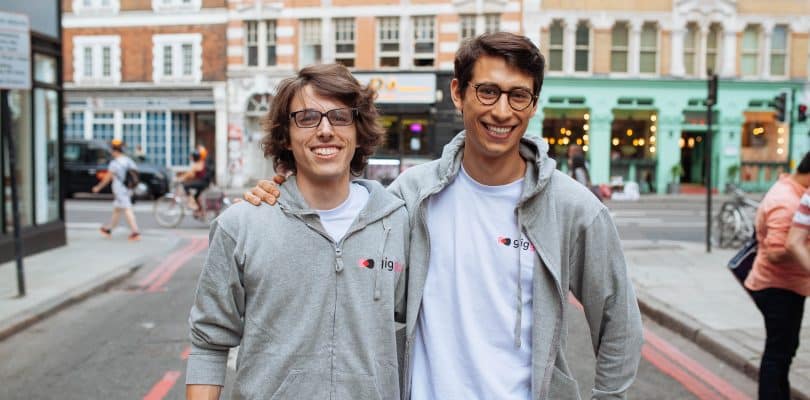Giggo is an app that connects musicians with venues and promoters around the world in 3 easy steps. The founders, Marco, Oscar and Alessandro took part in Launchpad in summer 2016, we caught up with Marco to ask him how starting-up their business is going.
Did you ever think you would start your own business?
“I had the beginning of the idea at 18 – at 18 you think you can change the world. I wrote a business plan but then I simply left the idea there and went to university. It wasn’t till I met the co-founders who had the same idea that I realised it was actually possible.”
How did Accelerator make the process of starting your own business easier?
“We made loads of mistakes when we first started. First of all, we were very excited and created a super long business plan. We also poured a lot of money into the development of an app. But Accelerator helped us realise we needed to work on a more concierge model fist. To build members and get our business off the ground.
“So, we started creating a market with the advice from Accelerator. Their hands-on approach, and the business canvas they showed us helped us be more flexible and dynamic. It was a much more logical path. We also enjoyed all their events they hosted, especially about topics like crowd-funding, and how to approach investors.
“They help you question yourself and your business idea for the better. They also helped match us with a mentor that was strong in areas where we lacked talent which was really helpful when we were getting started as well.”
What would you tell students who are thinking of entering either the big idea challenge or the Launchpad programme?
“Yes absolutely, you need to try it. Its London there is no better place to start a company. You meet lots of other great people and get lots of great tips. There’s really no better place to start your business than Accelerator.”
What were some of the challenges you faced while starting your own business?
“We lost a lot of money building our original app which was a mistake.”
How closely do you work with Accelerator now that you’ve finished the programmes?
“We continue to use Accelerator. For everyday business advice on who to hire and stuff like that. They continue to work so closely with us. They know about stuff that we have no idea about. Like writing contracts and its incredible helpful.”
How has your company evolved from your original idea?
“Well when we started I was supposed to be just a consultant, but then I wanted to get more involved so I now work full time on it. We also started with only venues and musicians in mind because that’s all we would need in Italy. But we realised here in the UK many Musicians and venues do not book their venues themselves. They use promoters, therefore we needed to add a third type of account for Giggo. This was something we had not anticipated we would have to add.”
How did being musicians help you shape your idea of what you wanted Giggo to become?
“It helps because we have musician friends. It also makes sense because we are answering one of the problems our own bands need as well. We struggle to find gigs just like other musicians. It also helps because we know what musicians are looking for. So, when you create profiles for bands you know exactly the sort of stuff they are looking for.”
In some of your pitching slides you note that there are a few other companies offering similar services as you do, what sets Giggo apart from its competitors?
“Most of the competition targets more professional talent. It makes more financial sense as there is more money being exchanged. However, one competitor has a great platform and offers a very similar service for smaller gigs and bands. But we have more available gigs at the moment, so we are hopeful we can still be successful. They also don’t offer any gigs that are unpaid, we do because we like to promote our musicians and know sometimes they just want to play their own music.”
What are your goals for your company in 2017?
“We need to start making revenue. We need to see some money coming in. Its time and we’ve been working long enough and we don’t have infinite money. We definitely still believe in the idea.”
This article was originally published here by Accelerator London, part of London Metropolitan University
